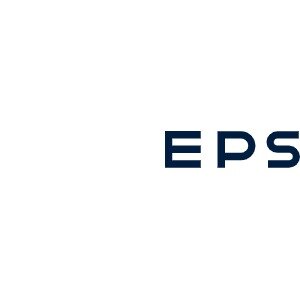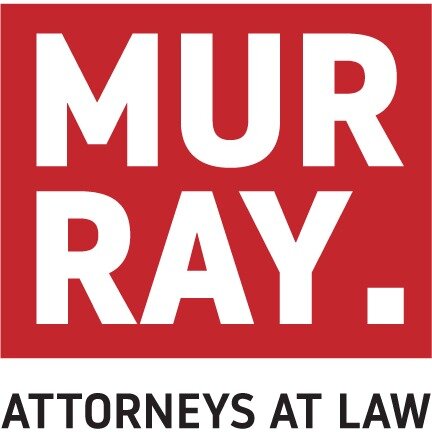Best Public-Private Partnerships (PPP) Lawyers in Curaçao
Share your needs with us, get contacted by law firms.
Free. Takes 2 min.
Or refine your search by selecting a city:
List of the best lawyers in Curaçao
About Public-Private Partnerships (PPP) Law in Curaçao
Public-Private Partnerships (PPP) are collaborative agreements between government entities and private sector companies aimed at delivering public services, infrastructure, or facilities. In Curaçao, PPPs have become an important mechanism to promote economic development, improve public services, and diversify funding for essential projects such as transportation, hospitals, schools, and utilities.
While there is no standalone PPP law in Curaçao, the framework is shaped by a combination of local ordinances, administrative procedures, and contractual agreements between public authorities and private parties. Understanding these components is crucial for parties interested in forming or participating in a PPP project within Curaçao.
Why You May Need a Lawyer
PPP projects involve complex legal and regulatory considerations. There are several situations where legal assistance is valuable or necessary, including:
- Advising on bidding, tendering, and procurement processes.
- Drafting, reviewing, or negotiating PPP contracts and agreements.
- Ensuring compliance with local, regional, and international laws.
- Assisting in the structuring and financing of PPP ventures.
- Managing disputes or disagreements that may arise between the public and private partners.
- Dealing with land acquisition, environmental regulations, and permits.
- Guiding public entities or private companies through transparency and anti-corruption requirements.
A legal professional specializing in PPPs can help you navigate these matters to safeguard your interests and ensure successful project delivery.
Local Laws Overview
The legal environment for PPPs in Curaçao is influenced by general public procurement laws, civil law principles, and sector-specific regulations. Key aspects include:
- Procurement and Tender Laws: Government entities must adhere to transparent and competitive bidding standards when selecting private partners.
- Civil Code: Contractual relationships in PPPs are governed by general provisions of the Civil Code of Curaçao, including contracts, liabilities, and obligations.
- Sectors with Special Rules: Industries such as water, energy, and waste management may have additional sector regulations that impact PPP structuring.
- Environmental and Zoning Laws: PPP projects involving construction or land use must comply with relevant environment and zoning legislation.
- Investment Incentives: Curaçao offers incentives for certain PPP projects, particularly those that encourage long-term economic growth or align with public interests.
Since PPPs are relatively new in many Caribbean jurisdictions, including Curaçao, experienced legal guidance is essential to navigate ambiguities or fill any gaps in the legislative landscape.
Frequently Asked Questions
What is a Public-Private Partnership (PPP) in Curaçao?
A PPP in Curaçao is a formal collaboration between a public sector body (such as the government or a municipality) and a private company to finance, design, build, operate, or maintain infrastructure and other public services.
Are there specific PPP laws in Curaçao?
Curaçao currently does not have a specific PPP law, but such cooperation is regulated through general contract law, procurement law, and sector-specific regulations.
Who initiates PPP projects?
PPP projects are typically initiated by government entities seeking private expertise and funding, but private sector companies can also propose projects under certain conditions.
What are the benefits of PPPs for private companies?
Private companies may benefit from new business opportunities, long-term contracts, shared risks, and the chance to participate in significant infrastructure development.
What are the risks involved in entering a PPP?
Risks include changes in government policy, unforeseen project costs, disputes over responsibilities, and compliance with complex regulatory requirements.
How does the bidding process work for PPP projects?
Bidding for PPP projects generally follows public procurement rules with open or selective tendering to ensure transparency and fair competition.
What happens if a dispute arises in a PPP project?
PPP contracts should include clear dispute resolution procedures, often with mediation, arbitration, or litigation in the local courts as possible remedies.
Can foreign companies participate in PPP projects in Curaçao?
Yes, foreign companies may participate, subject to local laws on investment, registration, and compliance with Curaçao’s regulatory framework.
Are there incentives for PPP projects that meet public needs?
Curaçao may offer incentives, such as tax breaks or expedited permitting, for PPPs that align with strategic development priorities.
Why is legal due diligence important in PPPs?
Thorough legal due diligence helps identify and mitigate legal risks, clarify roles and obligations, and ensure that contracts are enforceable under Curaçao law.
Additional Resources
Should you require further information on PPPs in Curaçao, you may find it helpful to consult the following authorities and organizations:
- Ministry of Economic Development of Curaçao - Responsible for economic growth initiatives and public infrastructure projects.
- Chamber of Commerce and Industry Curaçao - Provides guidance to businesses operating in Curaçao, including those involved in PPPs.
- Curaçao Investment & Export Promotion Agency (CINEX) - Offers support to international and local investors for project development.
- Local law firms with expertise in infrastructure and public procurement law.
These resources can provide both general and personalized advice depending on your needs and the nature of the project or partnership.
Next Steps
If you are considering entering a PPP agreement in Curaçao or are currently facing a legal issue related to a PPP, it is recommended to:
- Consult with a lawyer experienced in PPPs and Curaçao law to review your specific circumstances.
- Gather and organize all relevant project documents, including contracts, tenders, licenses, and correspondence.
- Clarify your goals and concerns to your legal advisor, so they can suggest the most appropriate steps for your case.
- Stay informed about updates to Curaçao’s laws or policies on PPPs, as this is a developing area that may see new regulations introduced.
Taking these steps will help ensure your rights are protected, risks are minimized, and your PPP project in Curaçao is positioned for success.
Lawzana helps you find the best lawyers and law firms in Curaçao through a curated and pre-screened list of qualified legal professionals. Our platform offers rankings and detailed profiles of attorneys and law firms, allowing you to compare based on practice areas, including Public-Private Partnerships (PPP), experience, and client feedback.
Each profile includes a description of the firm's areas of practice, client reviews, team members and partners, year of establishment, spoken languages, office locations, contact information, social media presence, and any published articles or resources. Most firms on our platform speak English and are experienced in both local and international legal matters.
Get a quote from top-rated law firms in Curaçao — quickly, securely, and without unnecessary hassle.
Disclaimer:
The information provided on this page is for general informational purposes only and does not constitute legal advice. While we strive to ensure the accuracy and relevance of the content, legal information may change over time, and interpretations of the law can vary. You should always consult with a qualified legal professional for advice specific to your situation.
We disclaim all liability for actions taken or not taken based on the content of this page. If you believe any information is incorrect or outdated, please contact us, and we will review and update it where appropriate.
Browse public-private partnerships (ppp) law firms by city in Curaçao
Refine your search by selecting a city.













